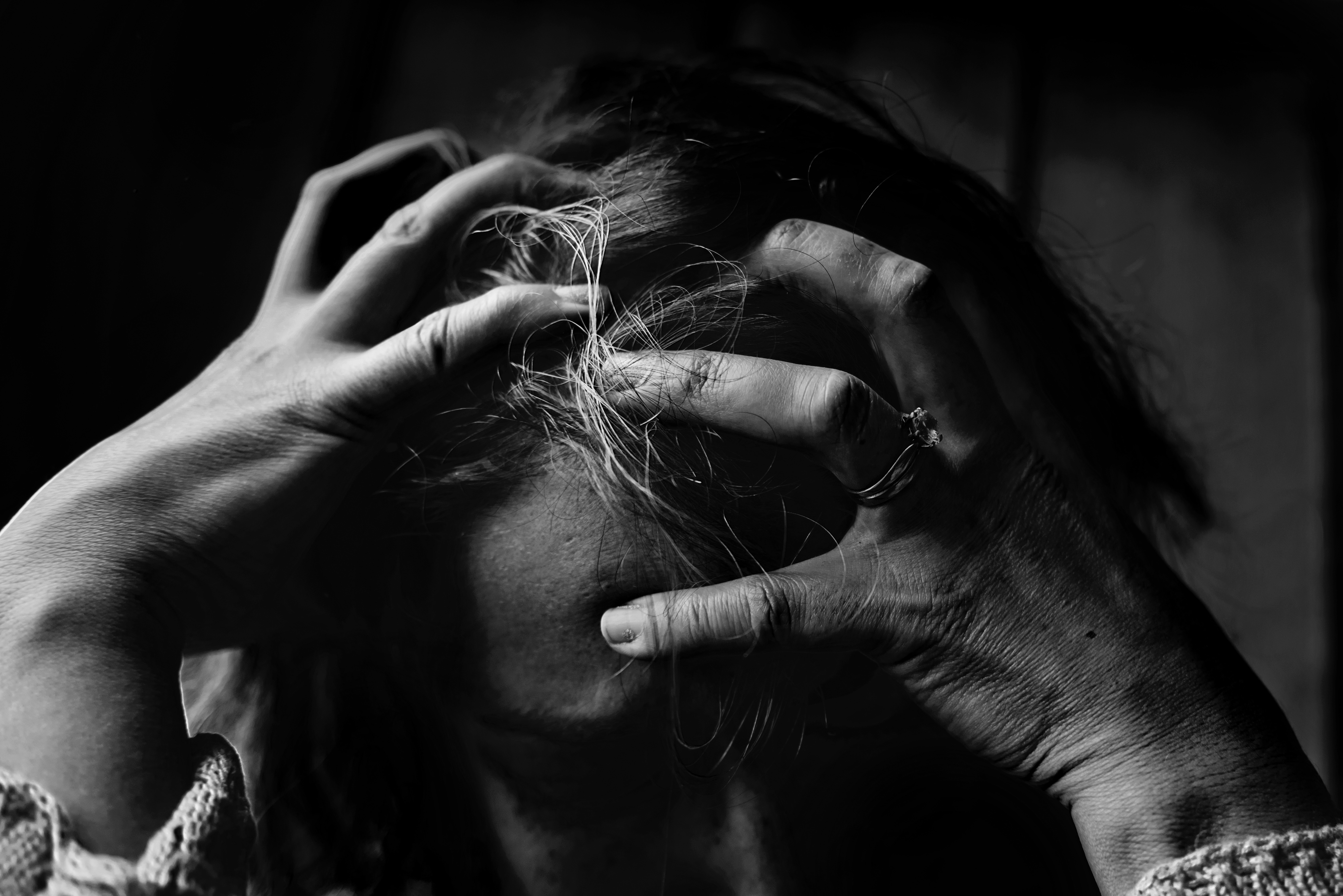
I feel that I am surrounded by mental illness as so many people I am close to suffer through it. There are young people who have attempted suicide in my community. I have friends needing to take time out from their jobs in order to recover from depressive episodes, all the while fearing that they may find themselves unable to support their families. The suffering caused by a mental-health condition is profound for the sufferers and for those who love and care for them. The anguish of the parents, siblings and friends left behind by someone who has taken their own life is indescribably awful. The suffering of loss is amplified by the sense that the person who died cannot have realised how their death would devastate those around them, and perhaps did not grasp how much they were loved.
The suffering of mental-health disorders presents a very particular challenge to anyone considering the question of suffering alongside questions of faith since, if we are afflicted personally with a mental-health condition, our very perceptions, thoughts and feelings are affected directly. It follows that in this kind of suffering it can be peculiarly difficult to ask where God is, or to assert confidently that God is not there, since we may well start to doubt the trustworthiness of our own responses, reasoning and intuitions. Additionally, people of faith with mental-health disorders may have experienced condemnation from other religious believers for the very suffering that they are enduring. Suffering has often been compounded when people have been made to feel as if a struggle with anxiety or depression is an indication of weak faith in religious contexts.
How might we begin to consider the question of where God is in the pain of mental illness? Different kinds of mental-health illnesses will be experienced quite differently, and so it might be helpful to consider what each worldview has to offer as well as the possibilities of the Christian faith.
Like other kinds of illness and suffering, mental illness is a very real and painful consequence of living in this fallen world. But it cannot, and does not, define a person totally and therefore there is hope.
Depression is a common mental-health problem that causes people to experience low mood, loss of interest or pleasure, feelings of guilt or low self-worth, disturbed sleep or appetite, low energy and poor concentration. It is likely that many of us will either have suffered personally from depression or are close to someone who is suffering. You may even be in the middle of an episode right now or supporting someone. For many of us this will not be a theoretical issue.
What does depression really mean for who we are as human beings in an ultimate sense? If we do not believe in God or any spiritual realm, we may view humanity from a completely physical perspective, understanding every human experience at a purely physical level and focusing only on the material aspects of life. This philosophical viewpoint often leads either to a kind of utilitarianism— where human value, happiness and experience are measured by what we are able to usefully contribute or produce—or it can be expressed in some form of determinism—where a human life is entirely governed by our genetic makeup and the individual person has no real potential for choice, transformation or progress. From both of these materialist perspectives, depression is very debilitating, since any experience of it either vastly reduces human productivity and utility, or will feel like an utterly inescapable fate—the inevitable outcome of your genes.
Another way of looking at human experience if we don’t believe in God is through the philosophy of dualism, in which the human mind, our thinking and rationality are paramount and the body is secondary. The body is thought to function as a kind of machine that is animated by the mind. However, if things start to go wrong with the mind— as happens with depression or any mental illness—it is experienced as an utterly fundamental problem that threatens to erase or shatter the very core of the sufferer’s human identity. If you are essentially your mind you are in danger of being erased by a mental illness. This can be very frightening indeed.
From a Christian perspective, a human being is more than their mind and their body. A human being is created in the image of God as a mysterious union of body, mind and spirit—and the full sacredness of that reality is not destroyed when things go wrong. But perhaps more importantly, as human beings we are loved. God exists, and God is love. His love for us is not theoretical love; it is actual love. The Christian faith recognises the reality of depression— from a Christian perspective, depression is an affliction fracturing and dislocating our body, mind and soul. Like other kinds of illness and suffering it is a very real and painful consequence of living in this fallen world. But it cannot, and does not, define a person totally and therefore there is hope. You are unwaveringly, wholeheartedly loved—valued as precious, honoured as worthy of receiving eternal love.

Evangelistic book answering questions about evil and suffering and how Christianity offers hope.
Where is God when depression hits? In the Bible he is close to those who are suffering; he offers an ultimate grounding for our worth and value, upholding our status as beloved and cherished people even though we experience darkness and depression as a result of living in this fallen world. We may well need medical support, medicine and talking therapies. We will certainly need the loving support of a community of people who are prepared to comfort, nurture and help us. But there is also a bigger picture: knowing that you are not alone and that this experience and this life are not the sum total of your existence. God offers us this hope in the context of relationship with him and in community with others that we were made to love and be loved. There is real comfort to be received from a loving God who does not deny the depth of our experience of depression but rather offers us an unshakeable foundation for our sense of identity and the value of our entire being— namely divine love.
Are people who attempt suicide or die by suicide condemned by God? With the rise of nihilistic worldviews and social-media sites that encourage people to end their own lives, we might ask: where is God in the struggle and pain of suicidal thoughts? If this life is purely material and all that exists is physical why is it such a big deal to end a life? We may need to revisit the question as to why death by suicide hurts the friends and relatives left behind so profoundly if life is just a matter of physics and chemistry?
It is worth considering the role of faith in how we process suicide and specifically how a Christian might think about it. I believe that the reported rise in the numbers of people considering suicide in the developed world and the honest articulation of these despair-filled questions gives us an insight into the humanity of each person who asks them. Notice in contrast the power of the idea that our lives are sacred—that every human life is precious and imprinted with God’s image. We human beings are made in the image of God. This complex and rich view of humanity chimes with the sense that human life ought to feel meaningful and fulfilling, as well as our sense of despair and dissonance when it does not.
If you are reading this and struggle with suicidal thoughts, I want you to know that I recognise the despair you feel. First and foremost, I would urge you to seek professional help as there may well be a chemical or medical cause underlying your suicidal impulses, or in the case of a traumatic or psychological underlying cause, therapy from a psychologist may be the most effective treatment. Just as you wouldn’t say, “Just pray about it” or “Don’t think about it” to a person with a broken leg, so with suicide the overriding advice should be to seek professional help.
Every life is precious and filled with redemptive possibility whatever our own feelings of hopelessness might say.
At the same time, I would also want to point to the preciousness of your life, however you feel about it at the moment. This truth is not a blind, hopeful stab in the dark, rather, it has a coherent intellectual foundation in the Christian faith. The truth that there is hope and that your life is worth everything—to anyone who loves you and (whether you believe in him or not) to God—is a beautiful and powerful truth to cling hold of. John’s Gospel says of Jesus that “in him was life, and that life was the light to all mankind.” Jesus is the source of life, and the intangible truth of the preciousness of that life is something that God can reveal to us in a very personal way. A deep revelation of the value of life is a legacy of genuine Christian faith.
The Bible does not only hold to an imago dei (image of God) view of human life in a kind of rose-tinted way, imagining that everything will be fine. It also recognises and describes the darkness of the world—including illness, death, depression and even suicide. These experiences are described and lived by characters in the Bible with real empathy and compassion. Sadly, mental illness was misunderstood for many years, leading churches to refuse Christian funerals or burials to those who died by suicide. But a careful reading of the Bible shows that it does not support that approach at all.
When we look at the Bible, I believe we never see suicide portrayed as the right choice, but always and primarily as a tragedy. The compulsion to end one’s own life is far from how things were ever meant to be, yet for many people it is a real and terrible struggle. From a Christian perspective, life is sacred, and the fracturing and dislocation of body and soul are extremely painful, but even in the midst of experiencing these dark and overwhelming feelings, there is a genuine, accessible and robust hope for redemption. Every life is precious and filled with redemptive possibility whatever our own feelings of hopelessness might say. And so it would be wrong to determine the significance of a person’s life by their productivity, utility to society, material, social or economic value. None of us are beyond the transforming hope offered in relationship with God. If you are struggling as you read this, or you know someone who is, please ask for help. Go to your doctor and ask for help. Seek the support of friends and family, and when you have done that, ask God to help you too. Your life matters; every life matters.
This is an adapted extract from Amy Orr-Ewing’s book Where is God in All The Suffering? This empathetic, easy-to-read and powerful evangelistic book is good for both unbelievers and believers alike. It will help those hoping to answer one of life’s biggest questions as well as those who are either suffering personally or comforting others.